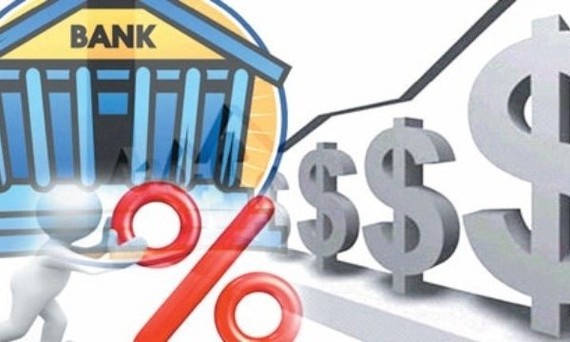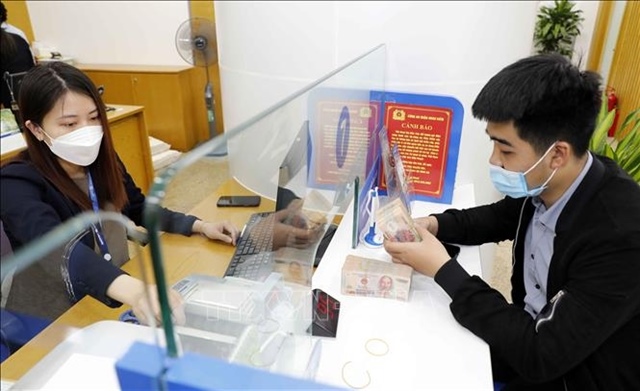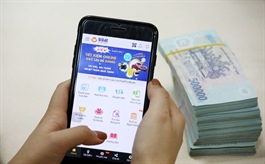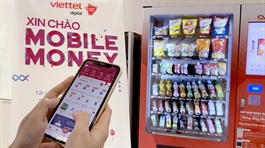Difficult to decrease interest rates
Difficult to decrease interest rates
After reducing deposit interest rates, commercial banks have increased the margin between input and output. Accordingly, only priority areas have low interest rates, and the general interest rates have not decreased in proportion to mobilization.
Illustrative photo.
|
Speaking with Saigon Investment on this issue, Dr. NGUYEN TRI HIEU, a finance and banking expert, said that this development was due to high risk of lending from banks.
JOURNALIST: - Sir, what are your comments on this trend?
Dr. NGUYEN TRI HIEU: - The policy of the Government and the State Bank of Vietnam is to reduce the deposit interest rates to lower the lending interest rates, helping businesses who are in trouble to avail of loans from banks at cheaper rates. Accordingly, the State Bank of Vietnam has reduced the operating interest rates three times, with a total reduction of 1.5% to 2% per year; decreasing 0.6% to 1% per year on deposit interest rate ceiling; and reducing 1.5% per year on ceiling lending interest rate for priority sectors. Banks also followed this policy to reduce deposit rates.
Moreover, banks are in a good condition to reduce input interest rates because they do not have the need to raise capital now. In 2020, deposits had grown well, while banks were more cautious in lending compared to previous years to avoid bad debts in the context of many businesses facing difficulties due to the Covid-19 pandemic. Specifically, credit growth only reached 12.13%, very low compared to previous years, so the liquidity in banks is abundant, which is a good condition for the deposit interest rate to decrease.
This trend of reducing deposit rates will persist, at least in the first quarter of 2021. In the second quarter, the input interest rate will depend on how we can control the pandemic and put the economy on recovery. If the pandemic is still dangerous and continues to affect the economy, it will reduce the demand for loans by businesses, from which interest rates will also continue to decrease.
In the opposite direction, if the economy recovers better in the second quarter, the demand for loans of businesses will increase, banks will have to mobilize more capital by increasing deposit rates to have enough capital to meet the borrowing needs of businesses. At that time, deposit rates are likely to rise again.
Throughout the second half of 2021, if the economy recovers strongly, interest rates will surely increase. Apart from the above factor, when the economy recovers, the State Bank may seek to control inflation by raising interest rates. Thus, the interest rate trend will depend on pandemic control and the economic recovery from the second quarter.
- Sir, many opinions say that the input interest rate has decreased rapidly, but the lending interest rate has not decreased adequately. What is your opinion on this?
- It is true that the current lending interest rate is not commiserating with the deposit interest rate. In general, the deposit interest rate has been reduced by 40% to 50%, while the loan interest has only reduced about 20%. The reason for this disproportionate decrease in interest rates is because the lending activities of commercial banks at this time are very risky. This risk has started to increase since last year when the pandemic struck again and continued to increase this year, when the financial health of many businesses has weakened even further.
Therefore, banks need to keep high profit margins between input and output interest rates, in order to be able to self-reserve and self-insure so that when the bad debt situation increases, it will be profitable to handle. Previously, under normal conditions, the difference between the input and output of the banks was about 3%. When the risk increased, they pushed the margin up to about 4% for redundancy, creating a cushion to handle risks.
- Sir, is the 4% margin, which many banks are applying, too high compared to the current health of businesses?
- Banks are money traders, so they have to keep a suitable profit margin of about 3% in normal conditions. When the risk increases they can increase the margin. That is the general principle of economies. However, in Vietnam, because the economy depends mainly on bank credit, it is easier for banks to increase the margin. For example, consumer credit in Vietnam depends a lot on banks, while financial companies have a low market share. In the US, by contrast, finance companies occupy a large market share, because product manufacturers of cars, refrigerators, computers, all have their own finance companies for consumers to borrow to buy their products. Therefore, it is difficult for US banks to easily increase the margin like in Vietnam.
- Sir, according to you, the opportunity to access cheap capital as expected of many businesses has come true, has it not?
- It can be said that in the context of the pandemic, the banking industry has certain advantages compared to other economic sectors. Specifically, bank profits still grew well, partly because input interest rates decreased significantly. Meanwhile, the interest rates have decreased more slowly, helping the industry profit margin to be higher than the previous year. The authorities also want banks to lower their output interest rates more, but they also understand that banks are at risk.
Therefore, they accept that banks with higher profit margins, i.e. not reducing the lending interest rates, commensurate with the mobilizing interest rates. As I forecast above, if through the middle of 2021 the economy recovers strongly, interest rates will definitely increase on both ends, because when banks increase input rates to attract capital, they will have to raise the output one.
Over past time, many businesses have also stepped up to find capital through corporate bonds, because capital mobilized from bonds also has better interest rates than loan interest, except for real estate companies. From September 2020, the Government had set new regulations to tighten the corporate bond market and earlier this year there were also some other regulations, therefore, the shift to find capital through this channel, although still available, will be lower than the capital from credit.
- Thank you very much.





























